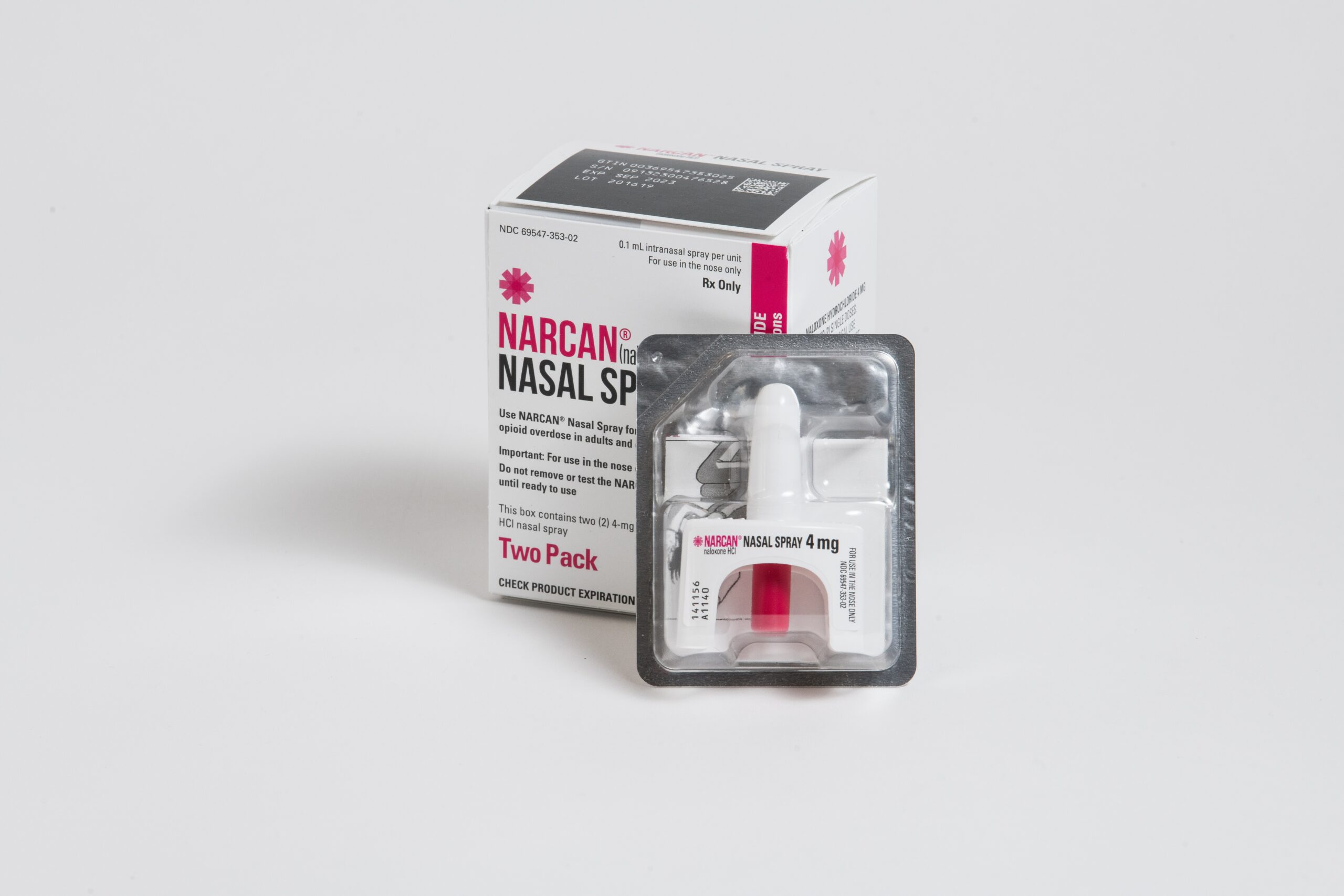
Access to Narcan nasal spray kits has been expanded to the TTC to help address opioid overdoses in Toronto. (NEXT Distro/Unsplash)
Listen to the story here:
Narcan is now available in Toronto subway stations. The fast-acting opioid overdose reversal kits, also known as naloxone, can be found at collector booths, hubs and on trained employees, the TTC said in a news release last Tuesday.
The TTC said that they have trained over 700 employees on opioid overdose prevention, recognition and response. This includes 100 special constables who will now carry naloxone kits while on patrol.
In the news release, TTC CEO Rick Leary said if a customer sees someone who may be experiencing an overdose they should alert TTC staff.
TMU nursing professor and harm reduction expert Corinne Hart said that the TTC’s decision could contribute to a safer subway environment. By having naloxone immediately available, time that would be spent calling and waiting for emergency services can now be used to help those in need, said Hart.
Sarah Dermody, the director of Clinical Addictions Research and Equity (CARE) lab at TMU says people can overdose anywhere, including the TTC. “Lives are saved when Narcan is immediately available to reverse the overdose,” she said.
This news comes after Toronto Public Health issued an alert on Sept. 9 that the average number of suspected opioid-related overdose deaths doubled in the city from Aug. 31 to Sept. 6. This spike added to a trend the city has called a “drug toxicity crisis.”
Hart said that while improving access to naloxone will not lessen the crisis it will probably help address some of the consequences of the crisis. “Is it going to help the crisis? No, because the crisis is caused by toxic drugs.”
According to Dermody, some signs of opioid overdose include “difficulty walking or talking, difficulty staying awake, blue or grey lips or nails, very small pupils, cold and clammy skin, making choking or gurgling or snoring sounds, having slow or weak or no breathing, and not waking up even when shaken or shouted at.”
Hart likened having access to naloxone kits to having access to defibrillators. “It should be the same principle. Somebody could have an event in a public place, what you need to do is have the tools,” she said.
Reporter,On The Record, Fall 2023.

